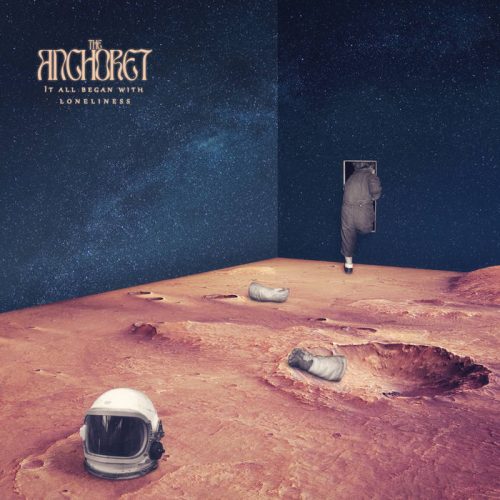
(Andy Synn examines how it all began with the new album from The Anchoret, out next week)
Allow me a few moments, dear reader, to get a little “meta” and write a few words about the act of writing (specifically, the act of writing about music, as opposed to actually writing music).
No matter how good you are, the truth is the written word can only ever give you so much insight into an artist or album, dependent as it is on language’s ability to, at best, only approximate our unique sensory experiences.
Let’s face it, there are only so many synonyms, similes, and similitudes we can use – words that can imply, yet only incompletely capture, what we mean when we refer to something as “heavy” or “progressive”, and so on – before we begin repeating ourselves, saying the exact same thing using only slightly different permutations of the same old clichés.
That’s why comparisons – though I know some readers find them overly reductive – are so important. Because they make it easier for us to share our knowledge and understanding.
After all, we’re all hearing the same things, even if we’re not necessarily hearing them in the same way.
So I hope you’ll forgive me for all the various references I’m about to use to illuminate the brilliant new album by The Anchoret.

Delivering just under an hour of eclectic, electrifying guitar-work and impressively powerful yet creatively-nuanced drumming – all topped off with passages of flittering flute and squawking saxophone, as well as some utterly sublime (yet never overbearing) synths and a plethora of plaintive, poignant melodies – It All Began With Loneliness takes a little bit of everything you already love about Progressive Rock/Metal and reminds you just why you love it in the first place.
The proggy-yet-punchy riffs of tracks like “Until the Sun Illuminates” and “Forsaken”, for example, have more than a little of Opeth and/or Edge of Sanity to them, and the strangely catchy yet subtly complex rhythms of the album evince some notably Tool-ish qualities and Karnivool-esque elements (most noticeably during songs such as “All Turns to Clay” and “Unafraid”), while the elegiacally eloquent, emotionally resonant vocals of Sylvain Auclair bring to mind both prime-era Pain of Salvation and the very best of Evergrey.
But here’s the thing (as a friend of mine loves to say)… is this a case of conscious influence or convergent evolution? After all, I can’t imagine a world where the members of The Anchoret (especially main songwriter Eduard Levitsky) don’t own a few Pink Floyd, Camel, and King Crimson albums, so it could well just be that they’re drawing from the same well as their more modern peers rather than drinking directly from their respective cups.
Even more importantly… does it really matter? Because while the above contrasts and comparisons certainly serve a purpose – or, at least, I hope they do – in giving you a sense of what to expect from this album, they’re no substitute for the joyous surprise of hearing “A Dead Man” for the very first time, nor can they fully capture the sophisticated songwriting and spellbinding melodic magic of “Someone Listening” or the devious, deceptive simplicity and intricate intensity of “Buried”.
So, does this mean that writing this whole review has, ultimately, been pointless?
Well no, of course not. For one thing I’m hopeful that you’ve been as entertained by reading it as I was by writing it. And, more importantly, I hope that you’ve taken on board the central message underlying everything I’ve written – that this album, far from denying its influences and inspirations instead embraces them, all of them, and in doing so becomes something far more than just the sum of its parts.

Spot on, Andy!! Loved this piece. As great as the album.